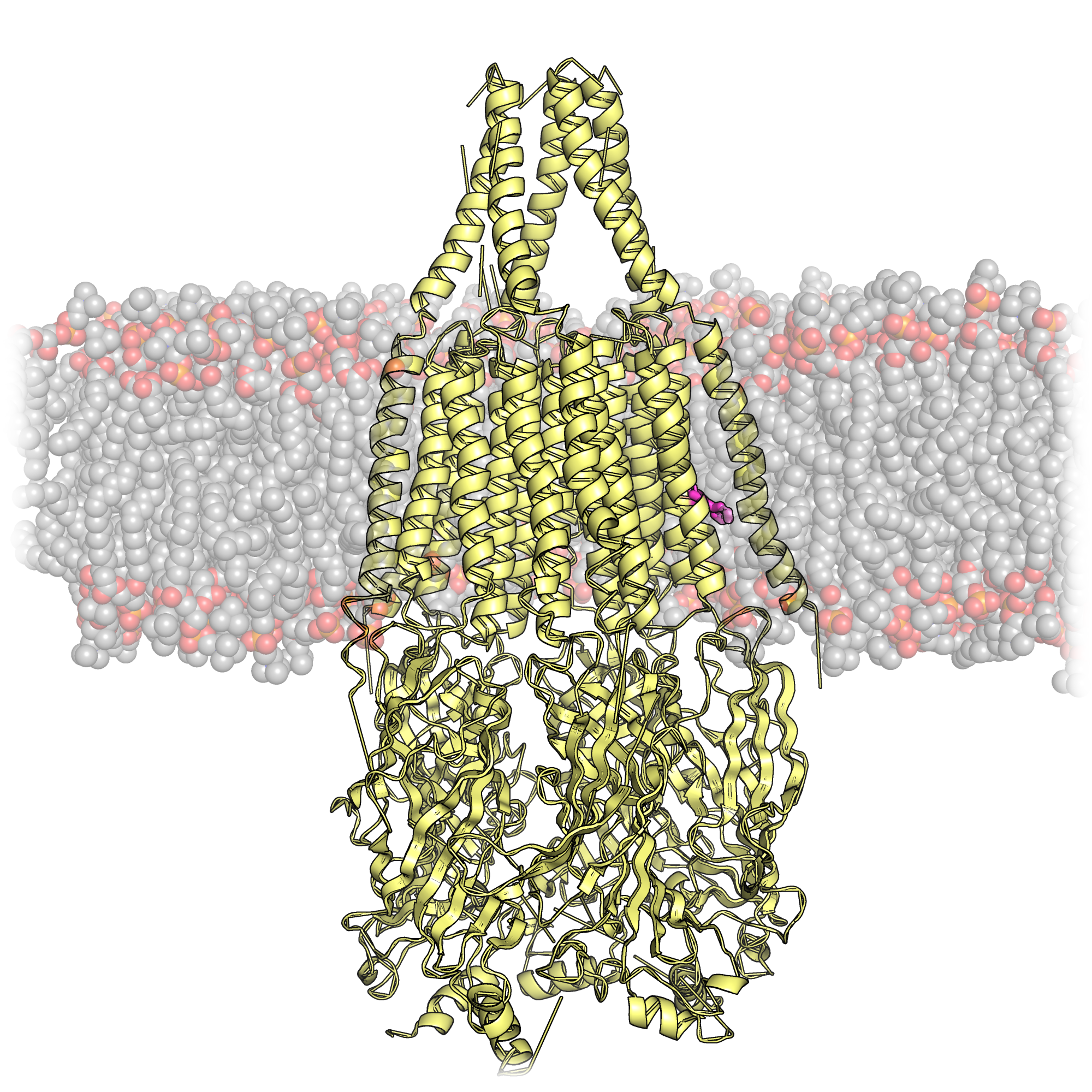mCSM-membrane: effects of mutations on transmembrane proteins
Abstract: Significant efforts have been invested into understanding and predicting the molecular consequences of mutations in protein coding regions, however nearly all of these methods have been developed using globular, soluble proteins. These methods have been shown to poorly translate to studying the effects of mutations in membrane proteins.
To fill this gap, here we report, mCSM-membrane, a user friendly web server that can be used to analyse the impacts of mutation on membrane protein stability and the likelihood of them being disease associated.
The mCSM-membrane models were assessed, and performed strongly, on stratified 10-fold cross validation with bootstrap repetitions, as well as independent blind tests. The stability predictor achieved a Pearson’s correlation of 0.74, across cross validation, comparable to performance across a manually curated non-redundant blind set of mutations of 0.64. The pathogenicity predictor achieved an MCC of 0.75 across cross validation, comparable to performance across a manually curated non-redundant blind set of mutations MCC=0.75.
mCSM-membrane represents a significant advance upon the current platform, which has been built using globular soluble proteins, by allowing the analysis of the effects of mutations on membrane proteins. We believe that this server will be an extremely useful resource for the community.
Nucleic Acids Research, v. 48 (W1), p. W147-W153, 2020.


Available Resources
| Stability effects | Prediction the stability effects of mutations on membrane proteins |
| Pathogenic mutations | Prediction of pathogenic mutations on membrane proteins |
